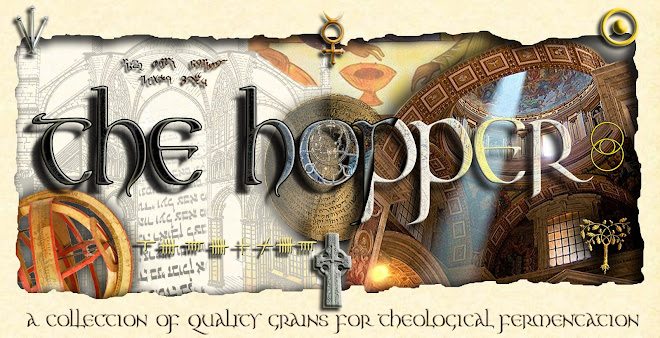By Thomas Merton
A tree gives glory to God by being a tree. For in being what God means it to be it is obeying God. It ‘consents,’ so to speak, to God's creative love. It is expressing an idea which is in God and which is not distinct from the essence of God, and therefore a tree imitates God by being a tree.
The more a tree is like itself, the more it is like God. If it tried to be like something else which it was never intended to be, it would be less like God and therefore it would give God less glory….
This particular tree will give glory to God by spreading out its roots in the earth and raising its branches into the air and the light in a way that no other tree before or after it ever did or will do….
The special clumsy beauty of this particular colt on this April day in this field under these clouds is a holiness consecrated to God by God's own creative wisdom and it declares the glory of God.
The pale flowers of the dogwood outside this window are saints. The little yellow flowers that nobody notices on the edge of that road are saints looking up into the face of God. This leaf has it own texture and its own pattern of veins and its own holy shape, and the bass and trout hiding in the deep pools of the river are canonized by their beauty and their strength. The lakes hidden among the hills are saints, and the sea too is a saint who praises God without interruption in her majestic dance.
The great, gashed, half-naked mountain is another of God’s saints. There is no other like him. He is alone in his own character; nothing else in the world ever did or ever will imitate God in quite the same way. That is his sanctity.
But what about you? What about me? Unlike the animals and the trees, it is not enough for us to be what our nature intends. It is not enough for us to be individual humans. For us, holiness is more than humanity. If we are never anything but people, we will not be saints and we will not be able to offer to God the worship of our imitation, which is sanctity.
It is true to say that for me sanctity consists in being myself and for you sanctity consists in being your self and that, in the last analysis, your sanctity will never be mine and mine will never be yours, except in the communism of charity and grace.
For me to be a saint means to be myself. Therefore the problem of sanctity and salvation is in fact the problem of finding out who I am and of discovering my true self.
Trees and animals have no problem. God makes them what they are without consulting them, and they are perfectly satisfied. With us it is different. God leaves us free to be whatever we like. We can be ourselves or not, as we please. We are at liberty to be real, or to be unreal. We may be true or false, the choice is ours. We may wear now one mask and now another, and never, if we so desire, appear with our own true face. But we cannot make these choices with impunity. Causes have effects, and if we lie to ourselves and to others, then we cannot expect to find truth and reality whenever we happen to want them. If we have chosen the way of falsity we must not be surprised that truth eludes us when we finally come to need it!
Our vocation is not simply to be, but to work together with God in the creation of our own life, our own identity, our own destiny. We are free beings and sons and daughters of God. This means to say that we should not passively exist, but actively participate in God's creative freedom, in our own lives, and in the lives of others, by choosing the truth. To put it better, we are even called to share with God the work of creating the truth of our identity. We can evade this responsibility by playing with masks, and this pleases us because it can appear at times to be a free and creative way of living. It is quite easy, it seems, to please everyone. But in the long run the cost and the sorrow come very high….
We do not know clearly beforehand what the result of this work will be. The secret of my full identity is hidden in God. God alone can make me who I am, or rather who I will be when at last I fully begin to be. But unless I desire this identity and work to find it with God and in God, the work will never be done. The way of doing it is a secret I can learn from no one else but God. There is no way of attaining to the secret without faith...
The seeds that are planted in my liberty at every moment, by God’s will, are the seeds of my own identity, my own reality, my own happiness, my own sanctity. To refuse them is to refuse everything; it is the refusal of my own existence and being: of my identity, my very self. Not to accept and love and do God’s will is to refuse the fullness of my existence.
If I never become what I am meant to be, but always remain what I am not, I shall spend eternity contradicting myself by being at once something and nothing, a life that wants to live and is dead, a death that wants to be dead and cannot quite achieve its own death because it still has to exist...




